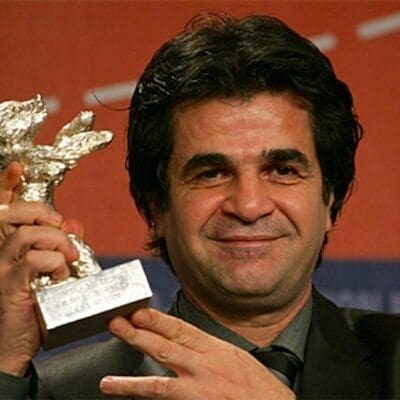Filmmaker Sentenced to Six Years in Prison
Jafar Panahi is an internationally celebrated film director who won the coveted “Golden Lion” prize at the Venice Film Festival for his 2000 film Dayareh (“Circle”).
Panahi has been sentenced to six years in prison plus a twenty-year ban on all his artistic activities—including film making, writing scripts, traveling abroad and speaking with media.
Panahi was convicted of “propaganda against the state” for having exercised his right to peaceful freedom of expression through his film-making and political activism. He was specifically accused of making an anti-government film without permission and inciting opposition protests after the disputed 2009 presidential election. Panahi’s artistic collaborator, Mohammad Rasoulof, was also sentenced to six years in prison. Panahi is not currently in detention but could be forced to report to prison at any time.
Jafar Panahi was detained in Evin Prison in Tehran for nearly three months following his arrest at his home on March 1, 2010.
While in prison he carried out a hunger strike to protest his degrading treatment, including being forced to stand outside in the cold with no clothing. He was invited to be a judge at the Cannes Film Festival in May 2010 but was in detention during the entire festival. His absence was recognized by the presence of an empty chair meant for him in prominent view on the stage throughout the festival.
 Jafar Panahi is a peace activist who is a member of the National Peace Council in Iran, a group set up in July 2008 on the initiative of the Center for Human Rights Defenders, an NGO established by Nobel Peace Laureate Shirin Ebadi and other prominent lawyers that was shut down by the government in December 2008.
Jafar Panahi is a peace activist who is a member of the National Peace Council in Iran, a group set up in July 2008 on the initiative of the Center for Human Rights Defenders, an NGO established by Nobel Peace Laureate Shirin Ebadi and other prominent lawyers that was shut down by the government in December 2008.
The National Peace Council has 85 representatives from different social and, ethnic groups and professions. Its aims are “creating and strengthening the basis for peace; preventing a military attack; abolishing the imposed sanctions and preventing any additional sanctions; ending the situation of ‘Neither war, Nor Peace.'” Jafar Panahi had supported the opposition Green Movement and had appeared at international film festivals in 2009 wearing a green scarf.
Jafar Panahi was briefly arrested in July 2009 during a gathering at a cemetery in Tehran of people mourning the death of Neda Agha Soltan, a young woman apparently killed by a member of the Basij militia during a protest at the outcome of the 2009 presidential election. He was later released, but subsequently banned from traveling abroad, including to the 2009 Berlin Film Festival in which he was due to participate. He was not permitted to attend the Venice International Film Festival in September 2010.
While speaking at his trial in Tehran in November, he said, “I, Jafar Panahi, declare once again that I am an Iranian, I am staying in my country and I like to work in my own country. I love my country, I have paid a price for this love too, and I am willing to pay again if necessary.”
Jafar Panahi’s films have been described as “social realist” and often provide a critique of the treatment of women in Iranian society. Several of his films have been banned in Iran. His first feature Badkonake Sefid (“White Balloon”) used non-professional actors to tell the ostensibly simple story of a small girl attempting to buy a goldfish for her family’s Nowruz (Iranian New Year) celebration.
Dayareh (“Circle”) is a film comprised of interlinked tales about several socially marginalized women struggling through challenging circumstances that reveal the oppression of women. His 2006 movie “Offside” combines humor with social criticism in a story about some girls who disguise themselves as boys so they can attend a soccer match, which is off-limits to female spectators.

